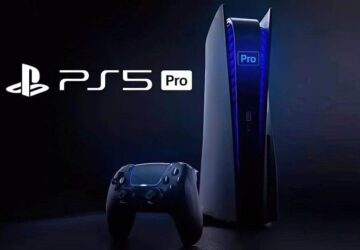The UK is not alone. Around the world revenue is being driven, profits are being turned and billions of dollars are being made – predominantly by the sale of video games.
The top 10 gaming markets, as of October 2018, are as follows:
- China – $34.4 billion
- USA – $31.5 billion
- Japan – $17.7 billion
- South Korea – $5.7 billion
- Germany – 4.9 billion
- United Kingdom – $4.7 billion
- France – $3.3 billion
- Canada – 2.4 billion
- Spain – $2.2 billion
- Italy – $2.1 billion
Figures are courtesy of Newzoo.com’s top 100 report, with VGsales.wikia consulted as well.
Digital is the way forward
Say goodbye to the big cardboard boxes of old. Digital is the new revenue driver for games.
Statista notes that US digital sales were up to 79% in 2017 versus 20% in 2009. In the UK, the trend is similar: a Eurogamer report notes that 80% of all sales are now digital.
In fact, investment management firm Piper Jaffray predicts that physical copies of games will disappear by 2022.
Also Visit: How to cancel xbox game pass
What do the 50 best-selling games of all time have in common?
The insights that follow are based on an analysis of the 50 best-selling video games of all time, as of 16 January 2019.
- 62% of the games are preoccupied with action/violence in one form or another
- 0% of the games feature a female-only protagonist
- 38% of the games feature male-only leads
- Only 9% of the games on the list feature a Hollywood A-lister
Diversity in gaming: Not a single game in the top 50 features a female-only protagonist
- 0% of the games focus on a female-only story
- By contrast, 38% of the games feature male leads
- 48% of the games allow you to choose your sex/gender
- 1 game on the list (2%) has an “unknown” protagonist (Need for Speed: Most Wanted) and 6 games (12%) don’t feature a human protagonist at all.
Games with female leads, like Horizon Zero Dawn, fall short of the top 50 despite outstanding results. In February 2018, Horizon was confirmed to have sold more than 7.6 million copies. The best-selling Tomb Raider game – 2013’s reboot – is closer to the top 50 still, netting 11 million sales in its lifetime so far.
Still, the lack of diversity is disappointing, and the results mirror a trend propagated by movies. Of the 50 biggest box office hits, only Frozen (Kristen Bell, Idina Menzel) and Beauty and the Beast (Emma Watson) afford a woman top billing.
But the situation is improving…
The new Star Wars films heavily focus on the story of Rey (Daisy Ridley) and from a video game standpoint, developers are trying to redress the imbalance.
In terms of upcoming releases:
- The Last of Us Part II will focus entirely on Ellie (she was a playable character in the 2013 original).
- Gears 5 from the popular Gears of War franchise will put you in the shoes of Kait, bucking the trend of male leads in Gears games past.
- Control, the next title from Alan Wake and Max Payne developer Remedy, will also have a female protagonist.
Violence remains a key selling point
62% of the games on the list are based around the central conceit of action, or violence.
The most popular genres all deal with it in one capacity or another:
- Action-adventure – 30% (15 out of 50)
- Shooters – 18% (9 out of 50)
- Role-playing– 14% (7 out of 50)
“Action-adventure” encompasses a mix of open world titles like Grand Theft Auto and more tightly-constructed fare like The Last of Us – both styles are preoccupied with violence.
Shooters emphasise violence even more – this a genre in which you’re literally looking down the sights of a gun.
Finally, role-playing blurs the line, but conflict is at the heart of the Pokemon games (albeit in cartoon form) and Skyrim sees players battling otherworldly creatures with swords, bows and magic.
Need for Speed might be a big-name franchise, but only one game from the series makes the top 50
Five racing games make the top 50, but four of them are Mario titles.
The one that isn’t – 2005’s Need for Speed: Most Wanted – followed on the heels off the chintzy and celebrity-heavy Need for Speed Underground games and emerged at a time when sentiment towards the franchise was at an all-time high.
Most Wanted also arrived in a year populated with an unusual number of platforms. The game was released for the Nintendo DS, Game Boy Advance, GameCube, PC, PlayStation 2, PlayStation Portable, Xbox, Xbox 360. This would have helped its sales performance.
The five lowest-ranking genres in the top 50 are:
- Arcade – 1 / 2%
- Puzzle – 2 / 4%
- Simulation, Virtual life – 2 / 4%
- Miscellaneous – 4 / 8%
- Driving, Racing – 5 / 10%
Hollywood lite: games don’t need well-known actors and actresses to sell well
In additional research on the top 50 best-selling games, we looked at how many involved a high-profile cast and whether this is a key selling point. It turns out, that while movies rely on big-name actors to make a splash, games are less dependent on star power to drive their wheels.
Only 15% of the 50 on the list feature a well-known gaming voice actor (a Nolan North or Troy Baker, for instance). This number drops to 9% when you tighten the net to Hollywood A-listers, who include:
- Cara Pifko (Kinect Adventures!, 2010)
- Ricky Gervais (Grand Theft Auto IV, 2008)
- Keith David (Call of Duty: Modern Warfare 2, 2009)
- Samuel L. Jackson, Ice-T, James Woods, Danny Dyer, William Fichtner, (Grand Theft Auto: San Andreas, 2004)
- Michael Madsen, Michael Rapaport, Kyle MacLachlan (Grand Theft Auto III, 2001)
Rockstar’s recent titles, like Grand Theft Auto V and Red Dead Redemption 2, have purposefully steered clear of Hollywood talent.
“[W]e don’t bring in name actors anymore,” Dan Houser, Rockstar co-founder, revealed to Vulture, “because of their egos and, most important of all, because we believe we get a better sense of immersion using talented actors whose voices you don’t recognize.”
Both Grand Theft Auto V and Red Dead Redemption 2 rely on relatively unknown actors, and given their incredible sales success, it hasn’t hurt them.
6 games could potentially ship 10 million copies or more in 2019 and 2020
The top 50 Smash Hit Success list demonstrates one thing loud and clear: franchise names sell well. And with the PlayStation 5 and the next Xbox likely around the corner, game-makers will have yet more platforms to make money on.
In theory, something like FIFA 20 could appear on the PlayStation 3, PlayStation 4 and PlayStation 5; the Xbox 360, Xbox One and the next Xbox.
Expect 2019 and 2020 to be bumper years for this fast-growing industry.
Likely best-selling games on the horizon:
- Super Smash Bros. Ultimate (based on the success of Nintendo first-party releases)
- 2019’s Call of Duty (based on prior Call of Duty success)
- FIFA 20 (based on the success of FIFA 18)
- The Last of Us 2 (based on the success of The Last of Us)
- Cyberpunk 2020 (based on the success of RPG fantasy games like Skyrim)
- Metroid Prime 4 (based on the success of Nintendo first-party releases)








